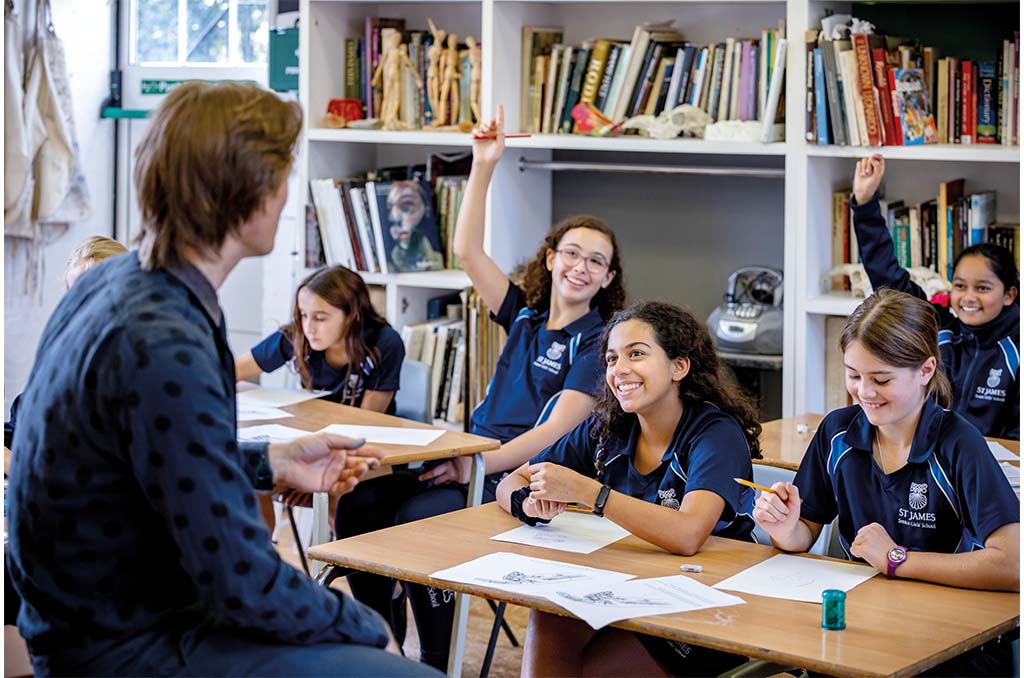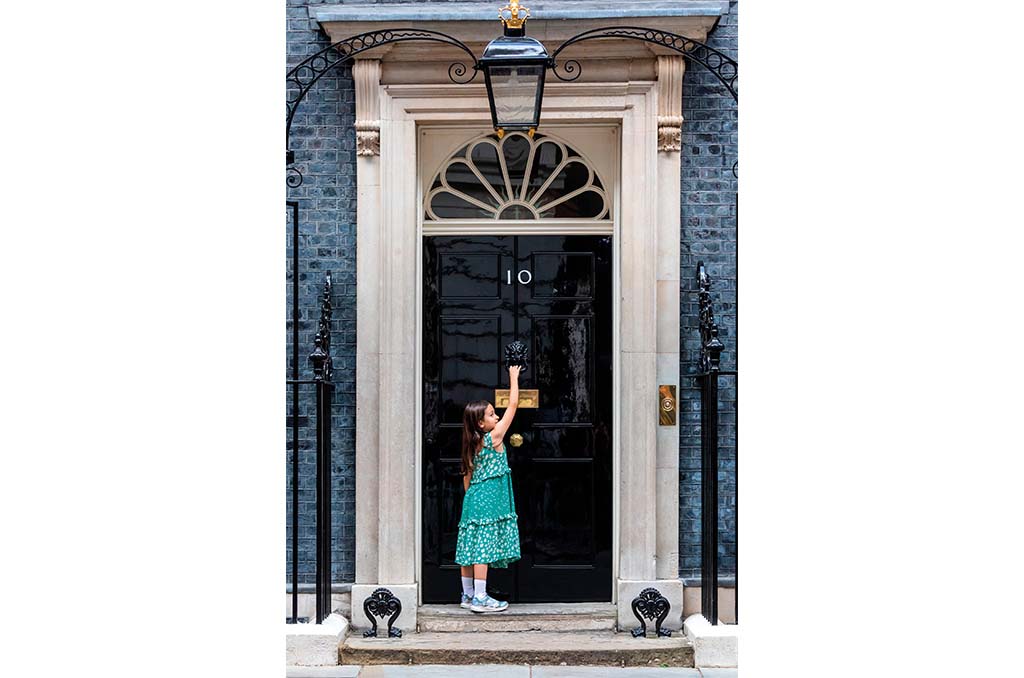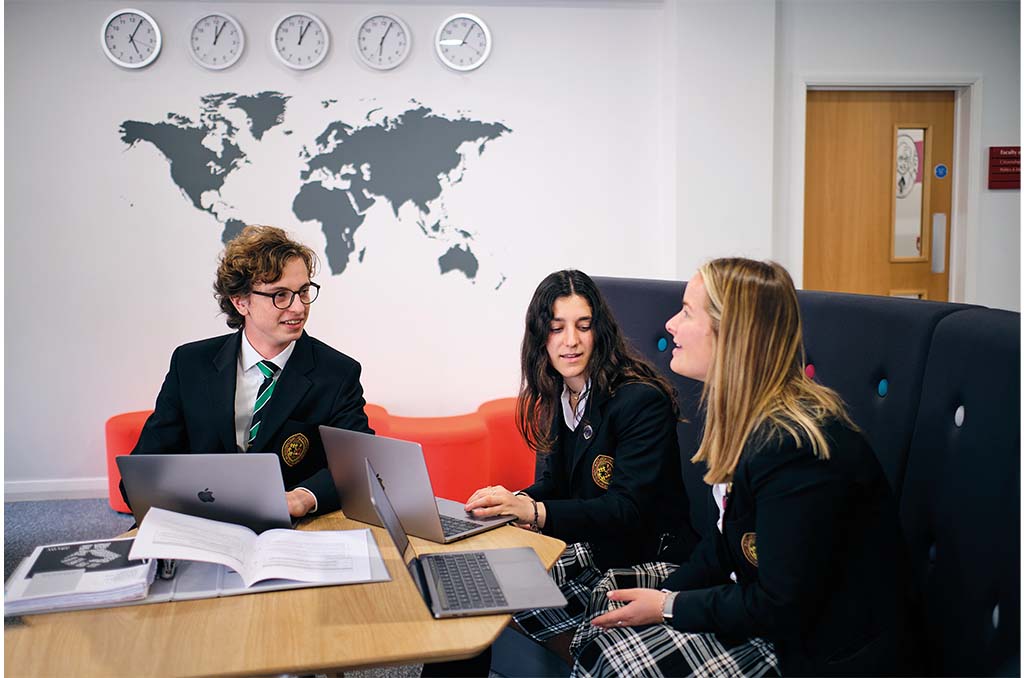How to Get Into Politics
By
3 years ago

Elections, debate clubs and Westminster day trips: our future MPs start young, reports Victoria Lambert

From climate change to Covid concerns, via marches, strikes, Facebook campaigns or clever TikToks, our young people have never been so politically active and aware. Far from the apathy of stereotypes, modern teenagers are engaging with the world around them like never before. Yet, this is also the era of fake news and online conspiracies, so how can we make sure they are given an honest grounding in the functioning of democracy and civilisation? Some will be future leaders – our MPs, councillors and campaigners – but all of them are the voters and taxpayers to come.
Worryingly, the number of young voters is on the slide. The 2019 General Election saw a turnout of about 47 per cent of voters aged 18–24, a decrease of seven per cent when compared to 2017. According to research from the London School of Economics, those who perceived themselves as middle class were more likely to be a non-voter than those who identified with no class. Those with GCSE level or below were also more likely to be non-voters than those with degree level or above qualification.
Yet, look at the one million-plus students who joined Greta Thunberg for her school strikes in 2019 pre-Covid. No lack of interest there.
It’s clear the responsibility of teachers to engage young people about politics has never been more important. So where and when does it start and how are schools tackling topics which spark the greatest debate?
At St Francis’ College, Letchworth, politics is taught specifically as a subject at sixth form level, explains Dr Nick Dennis, Director of Studies and Head of Politics, but the notions it encompasses such as law and culture are present throughout senior school education.
‘Fundamental British values are an essential part of the curriculum,’ Dennis says. ‘We cover the rule of law in a broad context. While politics is taught specifically at sixth form, it is part of everything else. It’s a discussion of who gets what, when and how. It’s human rights, poverty, charity. Not just the debate and the creation of theories, but how policies get enacted. I tell my students that politics is about who we are and who we want to be.’
Students at Cheltenham Ladies’ College (CLC) are exposed to political concepts from Year 7 upwards and politics is embedded in the Saturday enrichment programme, as well as Wellbeing (the school’s equivalent of PSHE). ‘In Years 7 to 9,’ says Head of Politics Debbie Burston, ‘topics include: What is Politics? The nature of democracy; Getting to know Parliament; Elections and Voting; Criminal Justice and Public Institutions. Upper College students (Years 10 and 11) cover similar ground in more depth, with discussion-based sessions on current political affairs. Recent examples have included debates around immigration, the Sarah Everard case, and the role of social media in shaping our political consciousness.’
Like St Francis’ College, politics is not a curriculum subject until sixth form, but the activities described ensure CLC students have a keen political awareness and are critically engaged in current affairs. ‘We are continually revising our provision and honing the ways in which our students are exposed to political knowledge to help them develop as global citizens,’ says Burston.

Oakham School’s Head of Citizenship, Viv Lamb, agrees. ‘We teach about political issues and how they affect the world from the Lower School onwards. This helps pupils gain a contextualised understanding of the outside world allowing them to develop a political ideology.’
Pupils can choose to study citizenship as a subject in Form 4, says Lamb. ‘This covers the political system and focuses on human rights and how law and politics play a part in this.’ But, she adds, ‘Political awareness is a central platform in geography and history lessons, be that the slave trade or the impact of globalisation. Religion and philosophy lessons also look at ethical issues which reinforce rights and responsibilities.’
At sixth form, Oakham School offers an A-level politics course and a course on Global Politics for the IB Diploma, which encourage discussion and debate and require pupils to study and present different global perspectives as well as understanding opposing and contestable claims.
‘Pupils learn more about the complex world we live in,’ says Lamb, ‘and its significant challenges, including global terrorism, poverty, economic instability and environmental degradation.’
Understanding where British politics fits into global affairs is key, says Dr Josef Craven, Head of History and Head of Citizenship at St James Senior Girls’ School in London. Craven explains: ‘We have a formal ‘politics’ focused course in Citizenship: ‘Living in the Wider World’. It helps Year 8 pupils make sense of their place in society, particularly in relation to rights, responsibilities and duties. We explore the idea of a ‘perfect society’ – and what might feature: allowing exploration into diversity, respect and tolerance.’
By Year 9, St James’s students are looking at the development of democracy which ties in with work in history such as Parliamentary Reform, the Peterloo Massacre, Chartists and Female Suffrage. ‘We also look at the workings of the British democratic system, including the role of an MP and the voting system. In Year 10, we explore the Political Spectrum and then the role of the Media in a healthy – and indeed unhealthy – society.’
Keeping a truly broad mind is invaluable. Nick Dennis says it would be ‘reductive’ to teach just from a Westminster perspective. ‘We’ve been living in a globalised society for quite a while,’ he points out. ‘A constrained, localised view wouldn’t equip students to understand the future or even the present. For example, talking about Brexit mean discussing domestic affairs but also its global implications.’
Part of his job is to help students to understand the complexity of political problems ‘in the round’. He adds: ‘Even if they want to disagree, they need to be armed with a variety of viewpoints.’

Which brings us to one of the most pressing issues of modern times: concerns around free speech. Many schools including Oakham work with the Model United Nations (MUN) Conference programme as a way to encourage healthy, respectful open debate. Students assume the role of national ambassadors to debate and develop key skills like public speaking, teamwork and negotiation. It follows the pattern of the United Nations and allows for trips to Dublin, Edinburgh and Amsterdam for conferences. Other activities including having a School Council and inter-house debating which is done between the School Houses.
St James stages mock general elections. ‘We also have House Debates every year,’ says Craven, ‘as well as debates organised by the English Department for every year group and for the Sixth Form as a collective.’
Dennis points out that young people are ‘eager to discuss’ difficult issues. ‘They are not saying they don’t want to hear difficult things,’ he adds. ‘But we have to make sure debates are able to happen in a civilised way in school. Sometimes politics is emotive and that needs to be recognised.’
Politics is also hugely popular, says Jess Kaye, acting head of the Government and Politics department, at Charterhouse, where more than 130 pupils choose to study it at IB and A-level. ‘With the impact of Covid-19,’ says Kaye, ‘pupils have become more aware of the importance of understanding our political system and the impact it can have on their lives, and this has helped to foster new interest as well.’
She adds: ‘It is a fantastic subject to study at this level, encouraging pupils to think deeply and synthesize information, but also helping to foster rigor in terms of analysing and using sources, and evaluating factors against each other. These sorts of skills are incredibly transferable and allow pupils to develop a structured and clear writing style and the ability to think critically and deeply on the spot. It is also really interesting and good fun, as we get to think about big ideas and exchange opinions.’

Inevitably, all schools report normal trips have been curtailed by Covid, but Laurence Ward, Head of Politics at Oakham, expects the school’s New York and Washington trip to go ahead next academic year. Trips like this aim to enrich pupils’ knowledge and understanding of global perspectives and supplement their preparation for their A2 and IB examinations.
They are not merely holidays, Ward explains: ‘We expect them to take an active role in researching activities. This includes planning debates and asking questions to the guest speakers which the school arranges either in Wall Street, NGO in the UN building or at government buildings.’
Kaye says Charterhouse is also looking forward to its usual US trip re-starting post Covid as well as taking pupils to the House of Parliament in Westminster, something the team at CLC are also planning.
Closer to home, Oakham also works with local MPs on action projects and pupils can also get involved with Select Committees at the school from the age of 16.
Within schools, much of the pupil enthusiasm is generated in dedicated clubs. At CLC, there is a Politics Society for sixth-formers, which is also attended by students from a local grammar school. This provides a weekly opportunity to discuss and debate topical issues. ‘The Politics Department are keen contributors to the Saturday lecture programme and College invites a range of speakers to address whole-school or specific audiences,’ says Burston. ‘Talks on the horizon include Andy Gillman MBE (Ministry of Defence), Sir John Hayes MP and Leila Hassan Howe (activist and editor). College is regularly visited by Alex Chalk, MP for Cheltenham, who most recently spoke to Sixth Form students about his role in shaping the recent Domestic Abuse Bill.’
At St James’s weekly politics club, speakers are a huge draw, says Josef Craven. ‘Last year we were delighted to welcome back Nigel Thorpe, the distinguished ex-diplomat and former UK Ambassador to Hungary, to discuss American foreign policy.’
Looking ahead, St Francis’ Nick Dennis believes politics is an excellent subject to support all kinds of careers. ‘It’s doesn’t limit you to a policy job,’ he says. ‘Many careers have political dimensions, such as the charity sector, careers in academia, going into business. Every single job involves politics in the widest sense.’
No wonder, Josef Craven would love to expand his own department – ‘should the timetable offer more time.’ As it is, he encourages students to get as ‘politically literate’ as they can by watching the news, listening to podcasts or looking at a newspaper (online or traditional).
Dennis concurs. ‘It’s clear to me that most people don’t understand how political processes work. Newspapers report events but people struggle with contextual understanding. When you think about Parliament, the devil is always in the detail. That’s what teachers of politics have to get across to our students.’
READ MORE FROM SPRING SUMMER 2022
Music to Our Ears | My Swiss Miss



